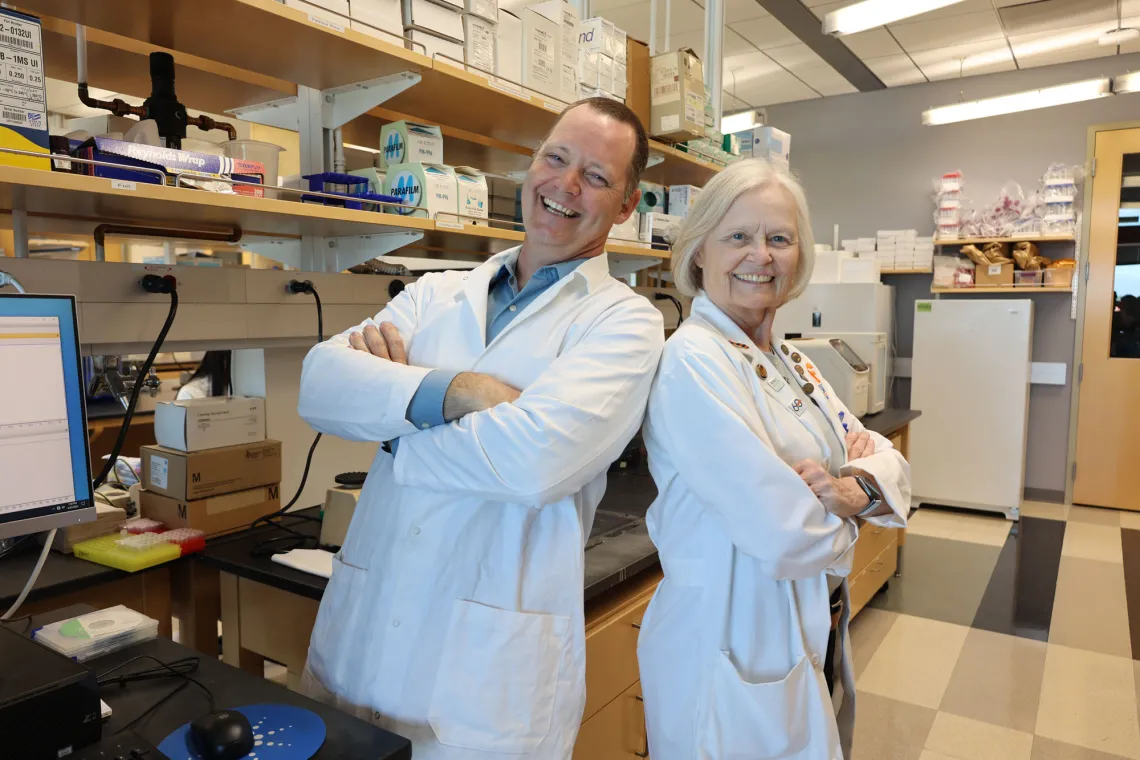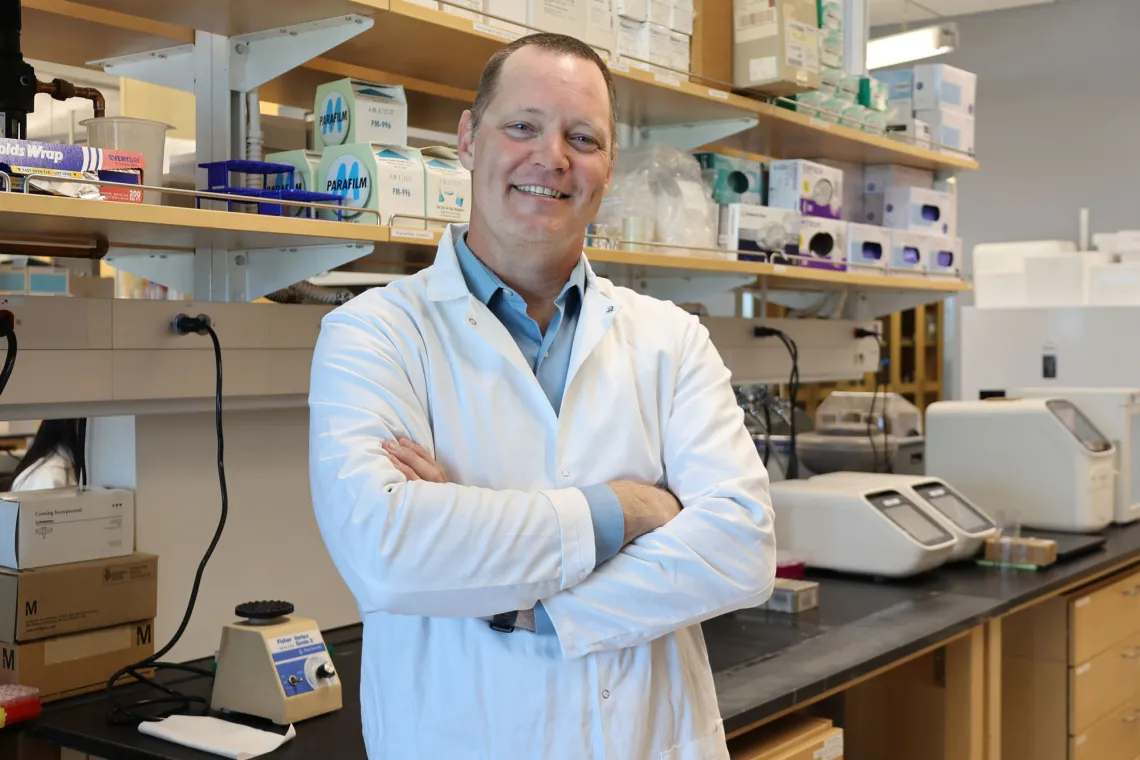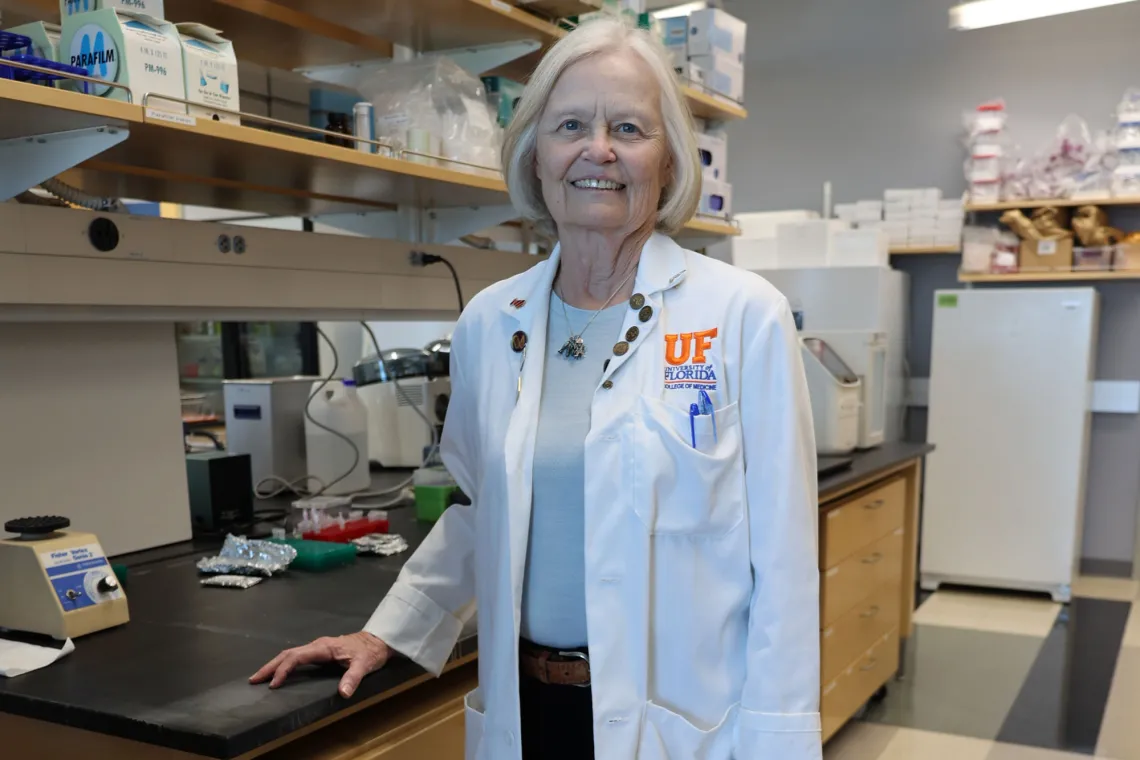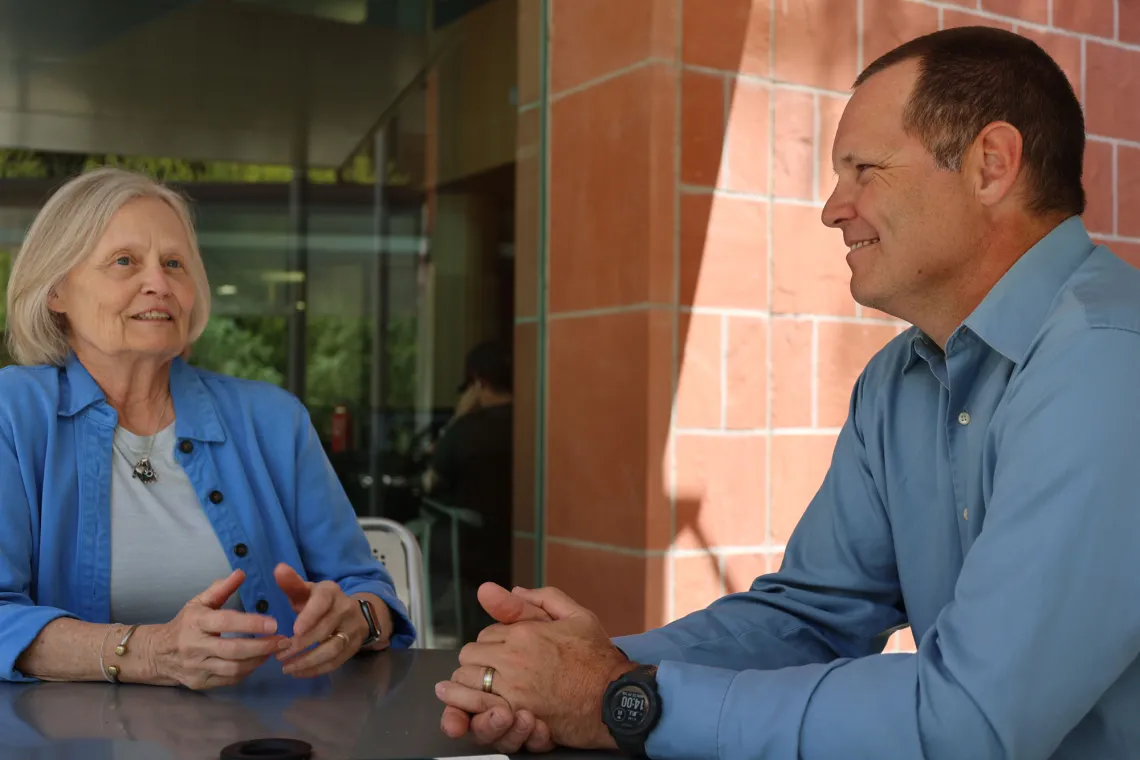Son-mother scientific team study plant-based solutions to treat cancer
Building upon a deep familial bond, Chris and Susan Frost at the University of Arizona BIO5 Institute are making strides to more precisely and safely deliver chemotherapeutic drugs.

Chris and Susan Frost are a son and mother scientific team combining their expertise in plant chemical ecology and cancer biology to find better ways to deliver chemotherapeutic drugs.
Strong relationships are important for successful research endeavors.
But what if that relationship was even more personal? Just ask son and mother scientific duo, Chris and Susan Frost, at the University of Arizona BIO5 Institute.
“I’ve always had a very good relationship with my mother,” said Chris Frost, assistant research professor at the UArizona BIO5 Institute. “Collaborating over science hasn’t changed our interactions, just the language.”
From an outsider perspective, their collaboration seems more unusual because of their disciplines – Chris Frost is rooted in the ecological world of plants while Susan Frost has years of experience in cancer biology.
But dig a little deeper, and perhaps this partnership isn’t too unexpected.
“We’re family, but we also have a connection at the molecular level,” said Susan Frost, emeritus professor at the University of Florida and designated campus colleague (DCC) at the BIO5 Institute. “He’s a chemical ecologist and I’m a biochemist.”
After almost a decade of work, they bridged their areas of expertise in a 2023 study published in PLOS One that investigated how a plant-derived compound has the potential to treat cancer by more precisely delivering chemotherapeutic drugs.
Today, with support from the BIO5 Institute, they are formally collaborating on experiments and writing grants as University of Arizona researchers.
Communication at the cellular level
Their fields of plant ecology and cancer biology didn’t converge for many years.
Chris Frost studies how plants dynamically react to their environment through chemical signals. An example of these signals are terpenes, natural organic compounds responsible for the way most plants smell. Often found in essential oils, terpenes have a wide range of medicinal use, from antimicrobial to anti-inflammatory.

Chris Frost, PhD, is a plant chemical ecologist and assistant research professor at the BIO5 Institute.
Susan Frost focuses on different kinds of signals. She studies proteins in cells that function as gateways permitting the transport of substances in and out of a cell.
For most of her scientific career spanning over 50 years, she was in diabetes research studying how cells regulate glucose uptake. Learning that glucose transport was elevated in cancer cells, she began collaborations around a decade ago that transitioned her to breast cancer research. Specifically, she focused on a protein that acts as a marker for triple negative breast cancer.

Susan Frost, PhD, is a emeritus professor at the University of Florida and a designated campus colleague at the BIO5 Institute with over 50 years research experience in diabetes and cancer research focusing on cellular membranes.
In different ways, mother and son focus on chemical communication and regulation at the cellular level. They might have discussed biochemistry and biological processes in passing but didn’t formally work together.
That was until Chris Frost learned about a specific plant compound, β-Caryophyllene (BCP).
Son-mother collaborators
BCP is a terpene found in clove oil, and while at a conference, Chris Frost learned more about how researchers had investigated potential anti-inflammatory properties.
After further examination of the compound, he wondered if BCP could have therapeutic value for treating cancer. So, he contacted an experienced medical researcher: his mother.
“Growing up, we never talked too much science,” said Chris Frost. “It’s been refreshing to communicate this way.”
Seven years later, their collaboration is still strong, even after Susan Frost formally retired in 2020.
“Sometimes with collaborators, you might not speak your mind,” said Susan Frost. “We don’t have that problem.”
They united their knowledge of biochemistry and cellular biology, conducting initial tests to see how BCP interacts with cells in tumor microenvironments. These preliminary results were informative, but undramatic.
“But then we did a transcriptional analysis on the effect of β-Caryophyllene in breast cancer cells,” said Susan Frost. “Through that, we discovered this unbelievable observation related to cholesterol biosynthesis.”
Understanding cell membranes for better drug delivery
Found in cell membranes, cholesterol plays a role in the structure and function of membranes and in cell signaling pathways. The analysis by the Frosts and their team demonstrated that BCP affects the biosynthetic pathway, or the recipe that a cell uses to produce cholesterol.
“If we can alter cholesterol composition, then we can potentially make that membrane more permeable to chemotherapeutic agents,” said Chris Frost.
What makes this finding even more exciting for cancer research was how BCP acts in the hypoxic, or low oxygen environment, created by a tumor.

Collaborating for seven years, Chris and Susan Frost are now working to secure funding to continue to investigate how a terpene could be a tool for better cancer drug delivery.
Just as human behavior changes with little air, cellular behavior changes with the hypoxic conditions created by cancerous tumors. This includes the functioning of cell membranes, making it difficult to deliver therapeutic drugs. But because BCP affects the biosynthetic pathway, researchers might be able to gain more control in drug delivery.
"BCP in some ways seems to reverse the hypoxic phenotype of breast cancer cells,” said Chris Frost. “If we can make a cell membrane look like a normal cell, then we can deliver chemotherapy more effectively and more precisely.”
And that precision is crucial in cancer treatment, making the treatment less toxic to the patient and more deadly to the malignant cells.
Next steps at the BIO5 Institute
Chris and Susan Frost are using the tools and collaborative atmosphere to continue this line of research at the BIO5 Institute. Not only are they an example of a strong scientific relationship, but also an excellent case study of how BIO5 seeks to foster collaborative research that impacts the health of the Arizona community and beyond.
“The BIO5 Institute and its director, Dr. Jennifer Barton, have really helped us with this project,” said Susan Frost. “With my DCC status, I’m able to use my cancer expertise to help Chris apply for grants.”
They are capitalizing on BIO5’s shared-use space and facilities that aim to lower the cost and increase access to research. Plus, they have applied for mini grants through BIO5 that can provide critical preliminary data to then apply for larger funding opportunities.
“I am in a fortunate position at BIO5,” said Chris Frost. “I’ve been not only encouraged, but almost given the directive to think outside the box of how I can use plant-based chemicals and ecology for the betterment of human health.”
Ultimately, their hope would be for BCP, or perhaps a synthetic variation, to become a tool in the toolbox to treat cancer.
“Our work has revealed some exciting new directions in breast cancer that may impact therapy through lipid metabolism, which I trained in many years ago. In a way, my scientific career has come full circle thanks to Chris,” said Susan Frost.
For now, they are enjoying their time in the lab working side-by-side.
